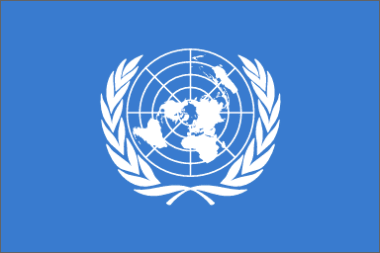 UNITED NATIONS — Nine months after he was elected to bridge bitter ethnic divisions at home, Sri Lanka’s president, Maithripala Sirisena, spent the better part of this week in New York trying to reassert his country’s place in the world.
UNITED NATIONS — Nine months after he was elected to bridge bitter ethnic divisions at home, Sri Lanka’s president, Maithripala Sirisena, spent the better part of this week in New York trying to reassert his country’s place in the world.
On Monday, he offered five infantry battalions for United Nations peacekeeping missions, a gesture that was welcomed at a summit meeting chaired by President Obama. That was in sharp contrast to Sri Lanka’s offer of helicopters when its previous government was under scrutiny for failing to address accusations of atrocities and other human rights abuses during the long, bloody conflict between the Tamil ethnic group and the majority Sinhalese.
On Thursday, the United Nations Human Rights Council adopted a resolution that Sri Lanka co-sponsored, signaling its desire to create a credible judicial process to try accused war criminals and involve foreign lawyers and judges in that process.
The resolution, adopted by consensus in Geneva, crucially left open the question of exactly what kind of court would be established, but it was enough to win plaudits from the United States and Britain. The president would not say how foreigners would participate. “This is something new to our government and to our people,” he said through an interpreter. “It’s a new experience.”
Mr. Sirisena, over tea at his hotel in Midtown Manhattan on Wednesday afternoon, said the court would be established after what he called careful consultations with religious leaders, politicians and military officials.
Setting up a war crimes tribunal, involving foreigners no less, is a highly delicate matter. It follows a report by the United Nations, which concluded that both sides had likely committed war crimes and that an independent judicial process involving foreign judges was needed, with the United Nations high commissioner for human rights, Zeid Ra’ad al-Hussein, saying bluntly that Sri Lanka is “not currently equipped to conduct an independent and credible investigation.”
The report described extrajudicial killings and disappearances, and gave accounts of torture and sexual violence. (Sri Lanka is not a party to the International Criminal Court.)
“I took over a country isolated by the international community,” Mr. Sirisena said, after a marathon set of speeches and meetings. “The main challenge I faced was to win over the international community. I believe these efforts have borne fruit.”
Asked for evidence, his ambassador to the United States, Prasad Kariyawasam, jumped in to say that the president had been offered a seat at the head table at lunch with Secretary General Ban Ki-moon, along with Mr. Obama and President Vladimir V. Putin of Russia. Mr. Sirisena said his offer of assistance in peacekeeping efforts had been welcomed.
Mr. Sirisena promised to help with more soldiers, including special forces units and experts on clearing unexploded ordnance. It put the onus on the United Nations system to carefully vet those soldiers, and roles they might have played in Sri Lanka’s own war.
Mr. Sirisena’s challenges are significant, both politically and legally. He was elected in January, defeating the incumbent, Mahinda Rajapakse, with a promise to heal the wounds from the civil war.
In the interview on Wednesday, Mr. Sirisena was unwilling to commit himself to any particular judicial mechanism, saying he would keep an open mind and make sure it was in keeping with Sri Lanka’s Constitution.
Sri Lanka does not allow foreign lawyers to practice in its courts, an aide to the president said later, and it was not possible for the country to set up a new international court without amending the Constitution, which would be extremely difficult politically.
“The mechanism must be domestic,” Mr. Sirisena said. In a measure of the lingering distrust, Kasippilai Manoharan, the father of one of five students killed by security forces on a beach near the port of Trincomalee in 2006, said he was skeptical of any judicial process that was not truly international. “I trust the international community and the Human Rights Council, but I’ll never trust Sri Lankan courts,” he said in an interview.
Source: Somini Sengupta, New York Times, 1 October 2015